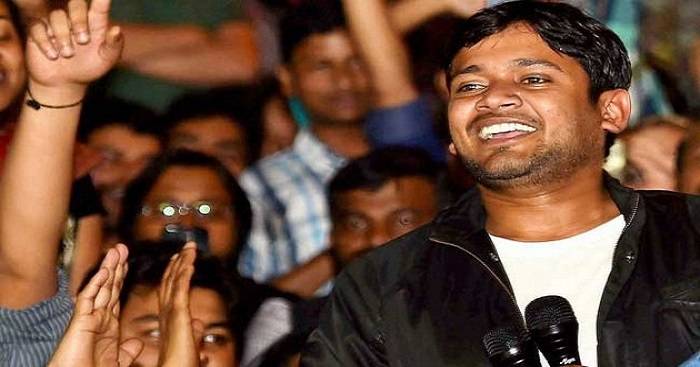
I am no supporter of Kanhaiya Kumar, rather, I have repeatedly called him, and his erstwhile colleagues in JNU, Delhi Shehla Rashid and Umar Khalid, empty headed demagogues ( see my articles ‘ Shehla Rashid is not the icon India needs ‘ published in theweek.in and ‘ Govt made Kanhaiya a hero ‘ published in indiatoday.in ).
Nevertheless, I do not believe he, or his colleagues, committed any crime on the JNU campus on 9th February 2016.
Hence I was surprised that the Delhi AAP Govt has sanctioned his prosecution.
The meeting on 9th February 2016 was to protest against hanging of Afzal Guru and support the struggle of Kashmiris.
It is alleged that some students shouted “Afzal hum sharminda hain, tere qatil zinda hain “. But I fail to see how this is sedition (even assuming Kanhaiya too shouted it, and the videos were not morphed ). Moreover, I myself have many reservations about the verdict of the Supreme Court in Afzal Guru’s case.
It is alleged that Kanhaiya and others shouted seditious slogans on that night in support of the demand of Kashmiris for azadi. But is demanding azadi a crime ? I submit it is not, and it is protected by the freedom of speech granted by Article 19(1)(a) of the Constitution.
The Indian Supreme Court in two decisions, viz Arup Bhuyan vs State of Assam, and Sri Indra Das vs State of Assam ( both delivered in 2011, see online ), has followed the Brandenburg test laid down by the US Supreme Court in its historic decision in Brandenburg vs Ohio ( 1969 ) that a speech is protected by the First Amendment unless it incites “ imminent lawless action “.
In that decision, which still holds the field today, the US Supreme Court observed “ The Constitutional guarantees of free speech and free press do not permit a state to forbid or proscribe advocacy of the use of force or law violation, except where such advocacy is directed to inciting or producing imminent lawless action, and is likely to incite or produce such action “.
Though I do not approve of the demand of azadi ( for Kashmiris, Khalistanis, etc ) I do not regard such a demand to be criminal. It will become criminal only if one goes further and commits violence or incites ‘imminent’ lawless action. Otherwise, by itself such a demand is protected by the freedom of speech in Article 19(1)(a) of the Constitution.
The word ‘imminent’ in the Brandenburg test is crucial. It makes more defined and more rigorous the ‘clear and present danger’ test of the celebrated Justice Holmes of the US Supreme Court in Schenck vs US ( 1919 ). From that perspective it becomes evident that Kanhaiya Kumar committed no crime. Perhaps the legal position was not correctly explained to the AAP leaders, and so I request them to reconsider their decision.
